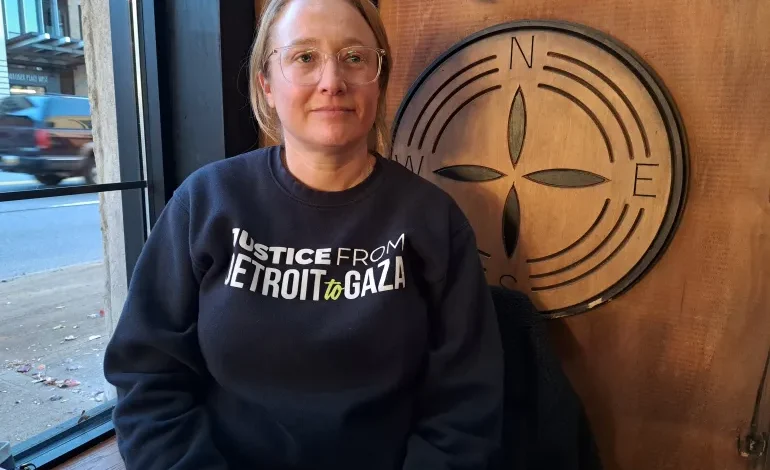Could a divided Jewish base upend US Democrats’ presidential hopes?

Raised in a Jewish American household, Dana Kornberg was in her early 20s when she started to become critical of the Israeli government.
It was 2006, and Kornberg was touring Israel, as part of what is called a birthright trip, a tradition for Jewish teens and young adults.
During her travels, she saw Israeli construction workers building a tall concrete barrier to fence in parts of the occupied West Bank, a landlocked Palestinian territory. She also heard Israeli comments about Palestinians that made her uncomfortable: “They were alluded to as being dangerous.”
Those experiences made her concerned about Israel’s treatment of Palestinians — something that evoked in her parallels to Jewish oppression throughout history.
“To me, it was horrific,” said Kornberg, now a 41-year-old assistant sociology professor. “What lessons have we learned from what our people have gone through?”Now, as Israel’s war in Gaza continues to rage, Jewish American voters such as Kornberg are grappling with the US’s role in the conflict — and how it will affect their voting preferences in the upcoming presidential election.
Jewish American voters have long been seen as a reliably Democratic voting bloc: The Pew Research Center dubbed them “among the most consistently liberal and Democratic groups in the US population”.
During the last presidential election cycle, eight out of 10 Jewish people identified as Democratic. But US policy towards Israel and the war in Gaza has since divided Jewish Americans, as well as the broader Democratic base, leading to fears of a depressed turnout.
On one hand, President Joe Biden has continued to rally strong support among Jewish voters by pledging his “rock-solid and unwavering” support to Israel, as it leads a months-long military campaign in Gaza.
That stance, however, has provoked outcry among more progressive Jewish organisations, as the death toll in the Palestinian enclave soars past 25,200.
Questions of rising anti-Semitism in the US have also mobilised Jewish advocacy groups, ahead of what is expected to be a tightly fought race for the White House in November.
A January poll from USA Today and Suffolk University showed narrow margins separating Biden from his chief Republican rival, former President Donald Trump. Biden received 37 percent support in the poll, compared with Trump’s 39.
Other surveys have shown foreign policy to be a top issue for voters this year, with a majority of Americans backing a ceasefire in Gaza, something Biden has refused to call for.
Kornberg, a member of the progressive organisation Jewish Voice for Peace (JVP), is among those protesting Biden’s stance on the war in Gaza, where United Nations experts have warned of the risk of genocide and famine.
In recent months, Kornberg has travelled from Michigan to Washington, DC, and Chicago to join demonstrations calling for a ceasefire. She was one of nearly 100 protesters arrested in November for blocking the Israeli consulate in Chicago.
Kornberg questioned whether Biden would be able to rally Jewish American voters before the general election. Even the prospect of a second Trump presidency, she warned, might not be enough to unite the Democratic base.
“I’m just not convinced that the fear of Trump is going to be enough to get [Democratic voters] to go to the polls,” Kornberg said.
She also criticised Biden for statements he made downplaying the Palestinian death toll and tying Jewish wellbeing worldwide to Israel.
“When Biden says things like, ‘The only place Jews can feel safe is Israel’, that’s a severely anti-Semitic comment because a lot of us heard it as if Jewish people shouldn’t be safe in this country,” she said of the US.









